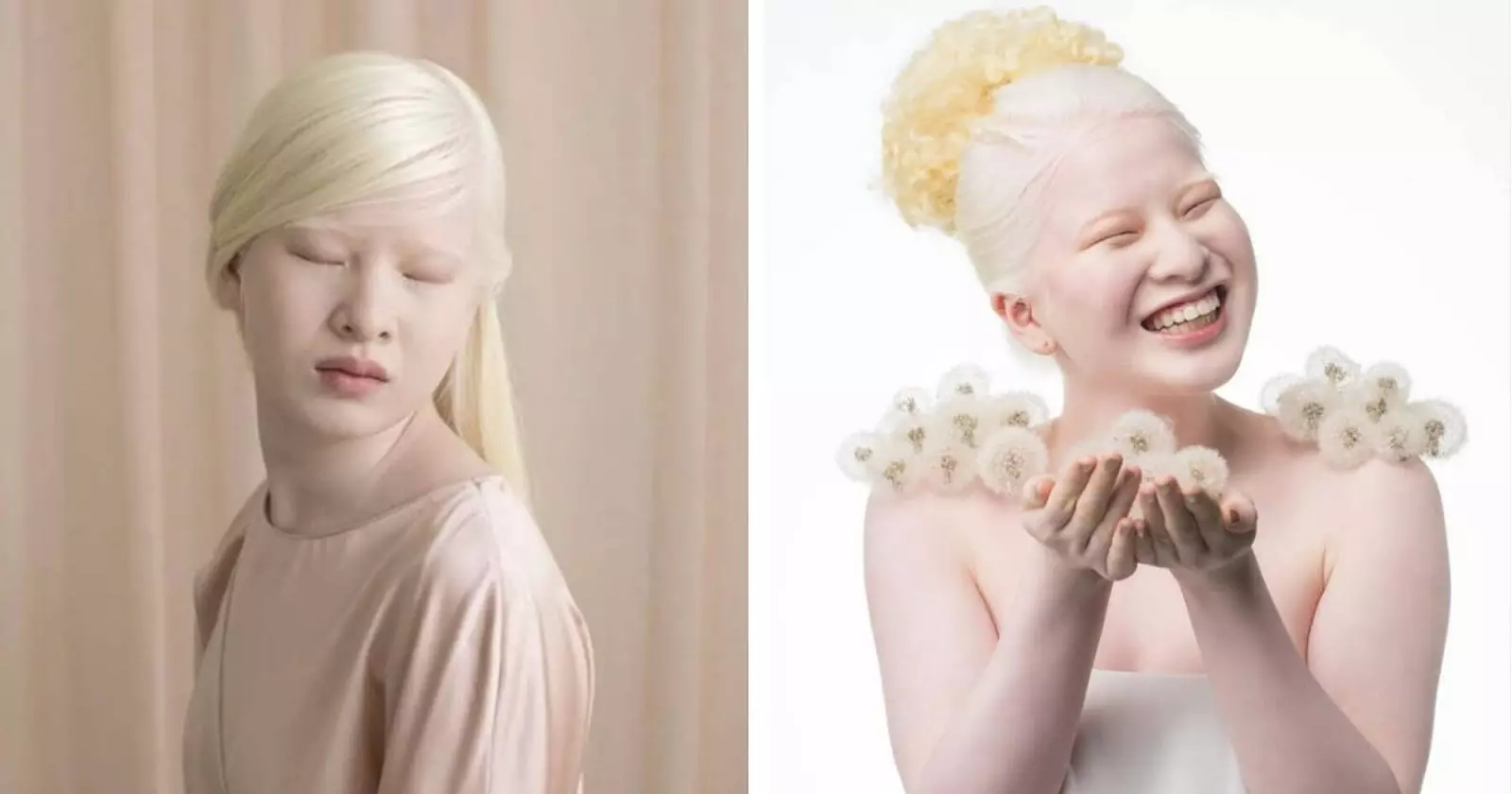The teenager, who has lived with her adoptive family in The Netherlands since the age of 3, said: “At the time I was born in China, the government enforced a one child policy on families. You were extremely unlucky if you had a child with albinism. Some children, like me, were abandoned, others were locked away or if they did go to school their hair was painted black”.
“But in some countries in Africa, they are hunted, their limbs may be cut off or they are killed. Witch doctors use their bones to make medicines as people believe these can cure diseases but of course this is not true, these beliefs are myths. I’m lucky I was only abandoned”.
She went on, “The staff at the orphanage named me Xue Li. Xue means snow and Li means beautiful. I was adopted when I was three and went to live with my mum and sister in the Netherlands. My mother said she could not think of a more perfect name and she thought it was important to keep a reference to my Chinese roots”.
[Click here to subscribe to Pregnancy Help News!]
“Perfect imperfections”
“My mum was in contact with a designer who was originally from Hong Kong. She has a son with a cleft lip and she decided that she wanted to design very fancy clothes for him so people would not always just stare at his mouth. She called the campaign “perfect imperfections” and asked if I wanted to join her fashion show in Hong Kong. That was an amazing experience”.
“After that, I was invited on a couple of photo shoots and one of them was for Brock Elbank at his studio in London. He published my portrait on Instagram. Zebedee Talent modelling agency got in touch and asked if I wanted to join them in their mission to get people with disabilities represented in the fashion industry”.
“One of the pictures Brock shot of me was featured in Vogue Italia’s June 2019 edition with Lana del Rey on the cover. At the time, I didn’t know what an important magazine it was and it took me a while to realise why people got so excited about it”.
Tweet This: Xueli Abbing was abandoned as a baby because of her albinism. Now she is an international model & campaigns for albinism representation.
“Looking different is a blessing”
“In modelling, looking different is a blessing not a curse and it gives me a platform to raise awareness of albinism”.
“The Kurt Geiger [‘People Empowered’] campaign is a really great example of how they let me show my difference. They allowed me to style and direct the shoot with my sister because coronavirus restrictions meant the photographer could not be in the studio. It meant I could express myself in whatever way I wanted and I’m really proud of the results”.
“There are still models who are like eight foot two and skinny but now people with disabilities or differences are featured more in the media and this is great – but it should be normal. Models with albinism often get stereotyped in shoots to depict angels or ghosts and it makes me sad. Especially because it perpetuates those beliefs that endanger the lives of children with albinism in countries such as Tanzania and Malawi”.
Xueli uses her platform to celebrate natural beauty, diversity and raise awareness about albinism.
She said: “People tell me my visual impairment gives me a different perspective and I see details that others do not observe. It also makes me care less about the traditional view of beauty. Maybe because I cannot see everything properly I focus more on people’s voices and what they have to say. So their inner beauty is more important to me”.
What is albinism?
People with albinism have a reduced amount of melanin, or no melanin at all. This can affect their colouring and their eyesight. People with albinism often have white or very light blonde hair, although some have brown or ginger hair. The exact colour depends on how much melanin their body produces. Very pale skin that burns easily in the sun and does not usually tan is also typical of albinism. The reduced amount of melanin can cause issues with eyesight, as melanin is involved in the development of the retina, the thin layer of cells at the back of the eye.
A spokesperson for Right To Life UK, Catherine Robinson, said: “Xueli’s story is truly one for the history books, and it is wonderful that she is using her platform to raise awareness of albinism ”.
“While China officially ‘relaxed’ its One Child Policy in 2015, forced abortion and sterilisation, along with the abandonment and infanticide of mainly female babies or babies with disabilities remain major issues. Just this month, exiles from China’s Northwest region of Xinjiang testified before the Independent Tribunal in London, on how the witnessed authorities in forced labour camps carry out forced sterilisations and forced abortions.”.
Image credit: Instagram @xueli_a
Editor's note: This article was published by Right to Life UK and is reprinted with permission.






